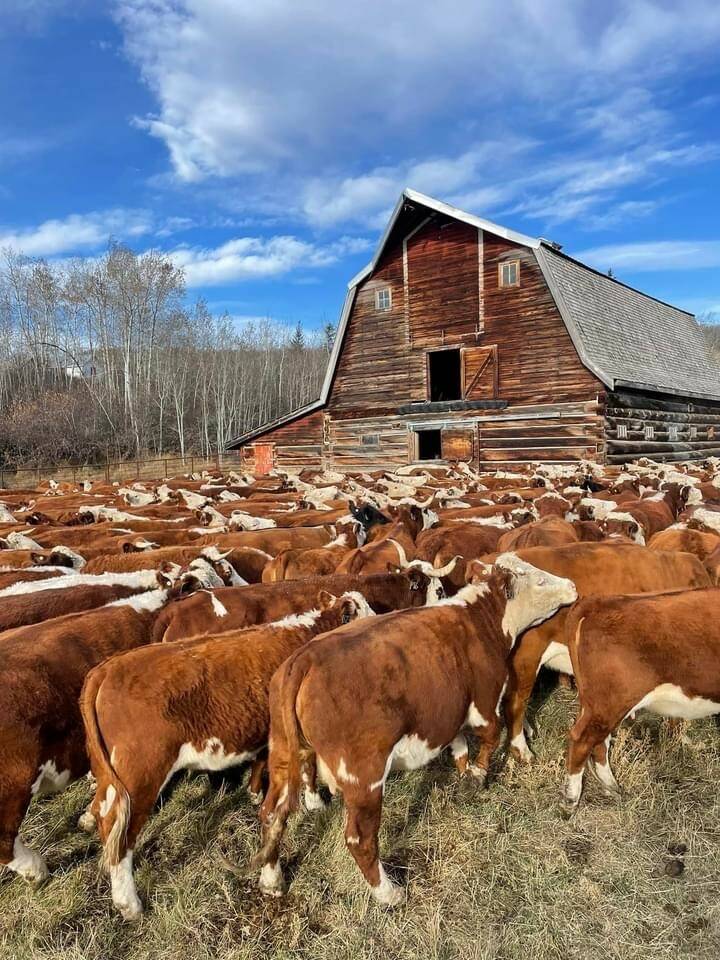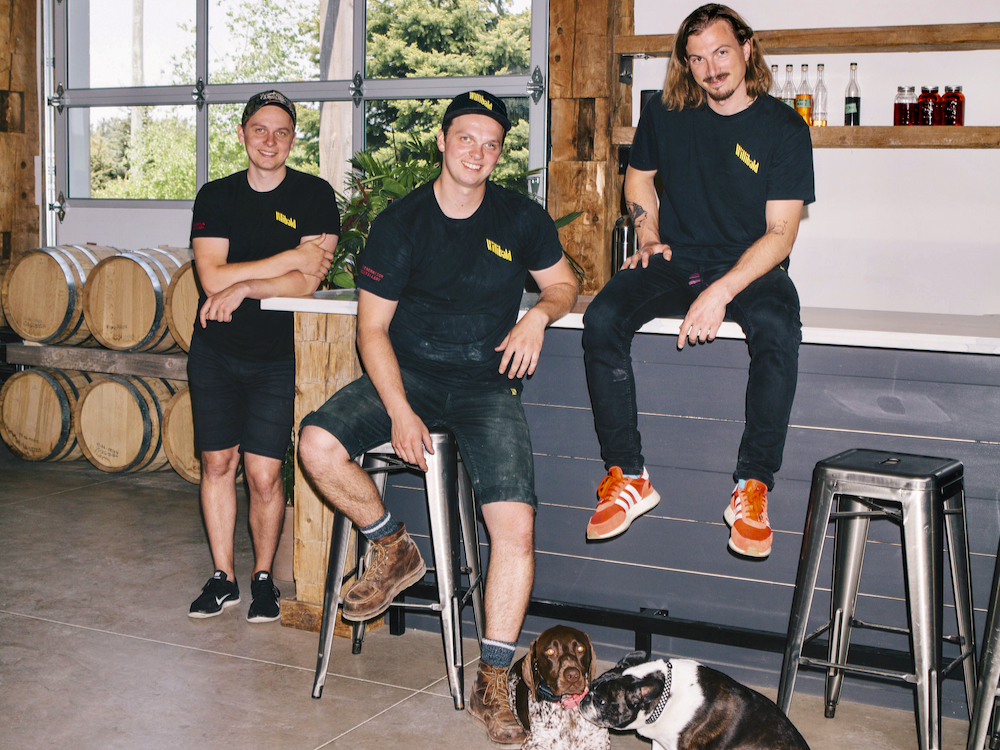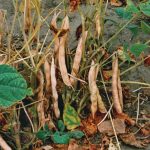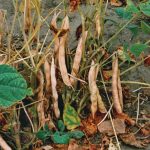If Ray and Tracey Bredenhof were solely growing chickens, Ray doubts they would have been named Canada’s Outstanding Young Farmers last December. To him, what the award was really recognizing was the purposeful way they have diversified their operation and how they continue to evaluate growth opportunities.
It’s a point worth looking at, so here’s some background.
The couple got their start in farming by growing pullets and ducks and capped off their first year in business by purchasing 5,000 units of broiler quota in 2005. While R&T Poultry has grown steadily ever since, Ray finds the cyclical nature of that industry leaves little room for innovation or creativity.
Read Also

B.C. Century Farm focuses on protection and quality of their herd
Despite numerous challeges past and present, this B.C. ranch focuses on what’s within their control to face industry headwinds.
He had been working as a heavy duty mechanic to support their young family while reinvesting farm profits to expand the business. Then, when the operation reached a point where it demanded more of Ray’s time and attention, but wasn’t necessarily a full-time commitment, the Bredenhofs set their sights on diversifying their Abbotsford, B.C. farm.
“We crunched numbers and made business plans for a number of different crop and livestock options,” says Ray, who is the third generation in his family to farm in B.C. “The goal was to diversify but I also wanted something where I could research, investigate and try new things.”
They were already running a flock of 75 ewes on their unused acreage, although that venture was turning out to be more work than it was worth.
Then the Bredenhofs came across a business idea that stood out amongst the rest, and as they invested more time in research and talking to growers, it only piqued their curiosity more. So they decided to do something that nobody expected from them. They were going to grow hops.
A new direction
Ray and Tracey built a six acre hop field and recruited their nieces and nephews to help them put 5,000 plants in the ground in the spring of 2015.
Fast-forward seven years and Bredenhof Hop Farms now grows 16 varieties and is the largest distributor of Canadian hops.
Was this all part of the plan?
Not at all. But it’s on strategy for Ray and Tracey — slow and steady growth in the direction the market demands.

In their first year of production, the Bredenhofs quickly realized the hop sector had little support. The Fraser Valley was once the largest hop producing area in the British Commonwealth but the industry collapsed in the 1990s. Two decades later, there were few agronomic resources and no availability of specialized equipment.
But the Bredenhofs didn’t turn back when they hit uncharted territory. In fact, the challenge lit a fire in Ray.
“It is a super-fascinating plant, the way it grows, flowers and matures,” he says. “It is probably one of the most difficult crops you can grow in Canada, but the difficulty drew me to it.”
Ray put his mechanic and welding skills to use and began modifying and building equipment to suit their needs. They linked arms with the handful of local farmers who started growing hops about the same time and set up an equipment sharing agreement.
The Bredenhofs also helped to develop fertilizer and spraying protocols. They worked with a consultant to develop an integrated pest management plan, nutrient management program and environmental farm plan.
“Despite the early challenges, our first hop harvest was incredible and our love affair with these glorious plants began,” says Tracey, noting their continual amazement that hop plants grow to 18 feet in just 75 days.
They sold their first crop to a farm that had the processing and distribution already set up. Shortly after, though, the Bredenhofs sensed problems in the industry and predicted there would be a processing capacity shortage in the near future.
Seeing an opportunity for vertical integration, they built their own processing plant, pellet mill and cold storage facility in 2017.
Whether it was a leap of faith or not, the investment paid off. When there was a shortage of processors the following season, the Bredenhofs were able to open their doors for business.
“We ended up doing some custom harvesting and it opened our eyes to the fact that we can grow hops and we can also be of service to other growers,” Ray says.
Global opportunities
With the slogan “Every brewer needs a farmer,” Bredenhof Hop Farms soon became an independent sales and distribution company.
The company imports hops from 10 countries and exports Canadian hops to seven countries around the world, a figure they are working with the Canadian Trade Commissioner Service to increase.
The Bredenhofs, who now manage three full-time employees, sell directly to breweries and offer contracts to give their customers consistent supply and stable, long term pricing. Local breweries in B.C. are an important part of their business but they are also the largest Canadian hop supplier for Molson Coors.
“From the smallest small town brewer to the biggest breweries in the world, we are working with all of them,” says Ray.
Naturally, the production side of their business has also grown over time. They now grow hops on 23 of their own acres and have arranged for an additional 35 acres to be custom grown.
Ray has continued to design and build equipment and they have invested in a harvester from Germany that can handle 30 acres per harvest.
Most recently, they quadrupled their cold storage facility to be able to handle the 15,000 kilograms of finished product they now yield each year.
The power of community
Prior to diversifying the farm, Ray served as a director of the BC Chicken Growers’ Association, the BC Poultry Association and the BC Agriculture Council.
When it became apparent that the hop industry was lacking grower resources, it helped him see that a structured industry association could bring value.
With the support of his hop-growing neighbours, Ray founded the BC Hop Growers Association in 2016 to unite growers within the province, collaborate with other Canadian growers and liaise with the International Hop Growers’ Convention.
The initial goals of the association were simple — educate new growers, perform research and lobby Health Canada and the Pest Management Regulatory Agency. Now that the re-emergence of the sector has solidified, the focus has shifted to branding, marketing and variety development.
Globally, hop growers are a relatively small, tight-knit community. Ray credits growers and distributors in the U.S. and Germany, the two largest hop-producing markets, for sharing many tricks of the trade.
But it’s not surprising that he appreciates the community around him and wants to give back. When the Bredenhofs have stumbled upon hard times, it’s their local community that rallies around them.

The oldest of Ray and Tracey’s four sons, Jacob, was diagnosed with osteosarcoma in 2018. His treatment — aggressive chemotherapy and ultimately a leg amputation — required him to stay an hour away at BC Children’s Hospital for a year.
While Tracey cared for Jacob in Vancouver, Ray stayed home to take care of their other three boys and run the businesses. The family was deeply touched by the number of community members who stepped up to do chores, cut the grass and clean the house so the whole family could visit Jacob on weekends.
Today, Jacob is in remission and has a new passion for wheelchair basketball. He was able to find a prosthetic leg that allows him to push a clutch so he can continue to enjoy tractor work around the farm.
Then one night in March 2020, the family was eating dinner when they saw smoke coming from their broiler barn. Thankfully, they were scheduled to place birds later that week so the barn was empty and no people or animals were injured.
“The community rallied around us that night and had barns, sawdust and feed lined up for our next cycle of birds before the fire was even out,” Ray recalls.
He witnessed the same type of community support when flooding hit B.C. last November. Whether someone needed to make sandbags or move cattle, neighbours showed up for each other and got the job done.
The Bredenhofs were under evacuation notice for two weeks but fortunately the flooding did not reach their home or outbuildings. The six acres at the back of their farm where hops are grown were underwater for about five days.
Proper insurance allowed a larger, more efficient barn to be rebuilt after the fire and at the time Country Guide spoke with Ray, the hop plants were waking up for the spring. It’s a good sign, but he won’t be able to fully assess the flood damage until later in the season.
“The challenges have taught us how to persevere,” Tracey says. “You choose your attitude going forward so we choose to be positive and make the best of what comes.”
In addition to the honour of being named Canada’s Outstanding Young Farmers, the Bredenhofs have been recognized twice with the Lupulin Cup, an award for growing the best hops in B.C. as selected by brewers.
While they appreciate the recognition from industry peers, Tracey says the ultimate reward is teaching their sons and watching them develop into productive and helpful citizens in society.
Risk versus profitability
Looking back, it’s safe to say entering the hop industry was the right move for the Bredenhofs.
Being raised on a large dairy and poultry farm, Ray admits he had no idea how stimulating growing hops could be. Since vertically integrating, he particularly enjoys the opportunity to see their product through the supply chain.
“With chickens, we grow our crop, they go off to market and we never see them again,” he says. “With beer, we often have customers reach out to tell us about an award they won with our hops and that is super-gratifying.”
The risk level is lower in the poultry business and it’s currently the more profitable side of the operation. But Ray thinks the hops will surpass the chickens in terms of income potential.
But he’s also found some common ground between the two commodities. When it comes to business management, his mindset is often the same.
Says Ray, “Part of our success has come from very keen observation, data collection, fine tuning our processes and finding that extra half-percent somewhere.”
With the end in mind
“For us, it’s always about goal setting,” says Ray Bredenhof. “Sometimes the path towards your goal changes but everything has to be started with the end in mind.”
As new opportunities come their way, Ray and Tracey will continue to put every decision on a set of scales. They ask themselves if the opportunity will help them achieve their goals and objectives, and whether or not it is sustainable.
When the Bredenhofs started growing hops, many brewers didn’t even know it could be done in Canada. Today, Canadian hop farmers can’t keep up with the demand.
But that doesn’t mean Ray and Tracey are going to double production or get aggressive about expansion any time soon.
It takes a couple of years to get a crop to maturity and it’s important to be cautious and not glut the market, Ray says.
Bredenhof Hop Farms fosters future innovation through their experimental field, a plot where Canadian and U.S. varieties are trialed for disease resistance and agronomic success first, and then for desirability and brewer demand.
The Bredenhofs are currently working with Kwantlen Polytechnic University on variety development and hope to have a hand in creating the first hop variety solely developed in Canada.















